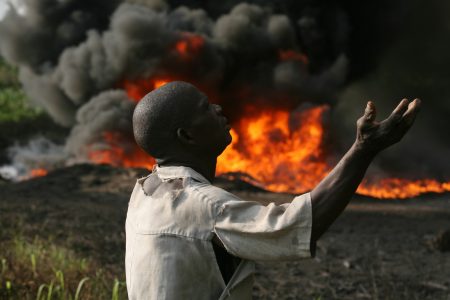On May 26, as a result of legal action brought by Friends of the Earth Netherlands (Milieudefensie) together with 17,000 co-plaintiffs and six other organisations, the Hague court ordered Shell to reduce its CO2 emissions by 45% by 2030 compared to 2019 levels [1]. This was the first time in history that a judge has held a corporation liable for causing dangerous climate change.
Friends of the Earth considered this decision an “historic verdict” that has “enormous consequences for Shell and other big polluters globally.” But, instead of complying with the ruling, Shell appealed on July 20.
To know more about the implications of this appeal, RWR contacted Nine de Pater, Chief Campaigner and spokesperson on the case for Milieudefensie.
“This appeal means officially that the verdict can change, that it can be overturned, but we are very confident that we will be able to also win in a higher court because our arguments are very strong, the verdict was very strong and very clear. And also, of course, the science is getting more and more convincing and it is very clear that we have to act now and that Shell is part of the problem,” says de Pater.
“We have science on our side. So we are not afraid of Shell´s appeal”.
About the delay in complying with the court ruling, de Pater added: “That is something very interesting [because] the judge decided that even if Shell wanted to appeal, which they did, they still have to start implementing the verdict, so it means that Shell cannot wait with the implementation of the verdict before the higher court decides on the appeal, so Shell has to start now.”
De Pater reminded that Shell has to reduce its CO2 emissions: “The verdict is about the future emissions of Shell and the judge said that this is not only putting us in danger but it is also in violation with our human rights. So, basically, Shell is violating human rights by causing dangerous climate change by CO2 emissions.” That’s why “the first thing Shell needs to do is to stop investing in new oil and gas projects -because they are still searching for new oil fields, new gas fields, and want to exploit those.”
